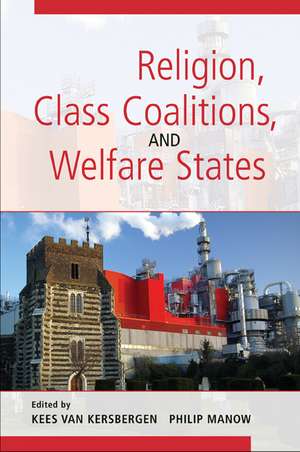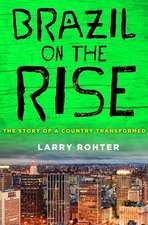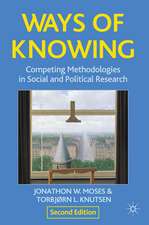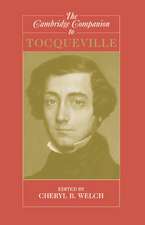Religion, Class Coalitions, and Welfare States: Cambridge Studies in Social Theory, Religion and Politics
Editat de Kees van Kersbergen, Philip Manowen Limba Engleză Paperback – 5 apr 2009
| Toate formatele și edițiile | Preț | Express |
|---|---|---|
| Paperback (1) | 250.30 lei 6-8 săpt. | |
| Cambridge University Press – 5 apr 2009 | 250.30 lei 6-8 săpt. | |
| Hardback (1) | 450.32 lei 6-8 săpt. | |
| Cambridge University Press – 5 apr 2009 | 450.32 lei 6-8 săpt. |
Din seria Cambridge Studies in Social Theory, Religion and Politics
- 11%
 Preț: 689.78 lei
Preț: 689.78 lei -
 Preț: 203.50 lei
Preț: 203.50 lei -
 Preț: 155.84 lei
Preț: 155.84 lei -
 Preț: 230.33 lei
Preț: 230.33 lei -
 Preț: 176.86 lei
Preț: 176.86 lei -
 Preț: 234.23 lei
Preț: 234.23 lei -
 Preț: 237.74 lei
Preț: 237.74 lei -
 Preț: 160.22 lei
Preț: 160.22 lei -
 Preț: 284.78 lei
Preț: 284.78 lei -
 Preț: 327.30 lei
Preț: 327.30 lei -
 Preț: 201.59 lei
Preț: 201.59 lei -
 Preț: 283.03 lei
Preț: 283.03 lei -
 Preț: 230.51 lei
Preț: 230.51 lei -
 Preț: 286.89 lei
Preț: 286.89 lei -
 Preț: 225.20 lei
Preț: 225.20 lei -
 Preț: 263.79 lei
Preț: 263.79 lei - 14%
 Preț: 686.73 lei
Preț: 686.73 lei -
 Preț: 223.29 lei
Preț: 223.29 lei - 11%
 Preț: 560.27 lei
Preț: 560.27 lei -
 Preț: 286.89 lei
Preț: 286.89 lei -
 Preț: 203.50 lei
Preț: 203.50 lei -
 Preț: 200.61 lei
Preț: 200.61 lei -
 Preț: 231.47 lei
Preț: 231.47 lei -
 Preț: 281.30 lei
Preț: 281.30 lei -
 Preț: 292.67 lei
Preț: 292.67 lei -
 Preț: 275.85 lei
Preț: 275.85 lei - 14%
 Preț: 697.95 lei
Preț: 697.95 lei
Preț: 250.30 lei
Nou
Puncte Express: 375
Preț estimativ în valută:
47.90€ • 49.41$ • 39.97£
47.90€ • 49.41$ • 39.97£
Carte tipărită la comandă
Livrare economică 27 martie-10 aprilie
Preluare comenzi: 021 569.72.76
Specificații
ISBN-13: 9780521723954
ISBN-10: 0521723957
Pagini: 320
Ilustrații: 1 b/w illus. 4 tables
Dimensiuni: 150 x 226 x 23 mm
Greutate: 0.43 kg
Editura: Cambridge University Press
Colecția Cambridge University Press
Seria Cambridge Studies in Social Theory, Religion and Politics
Locul publicării:New York, United States
ISBN-10: 0521723957
Pagini: 320
Ilustrații: 1 b/w illus. 4 tables
Dimensiuni: 150 x 226 x 23 mm
Greutate: 0.43 kg
Editura: Cambridge University Press
Colecția Cambridge University Press
Seria Cambridge Studies in Social Theory, Religion and Politics
Locul publicării:New York, United States
Cuprins
1. Religion and the Western welfare state: the theoretical context Philip Manow and Kees van Kersbergen; 2. Western European party systems and the religious cleavage Thomas Ertman; 3. The religious foundations of work-family policies in Western Europe Kimberly J. Morgan; 4. Italy: a Christian democratic or clientist welfare state? Julia Lynch; 5. Religion and the welfare state in the Netherlands Kees van Kersbergen; 6. A conservative welfare state regime without Christian Democracy? The French Etat-providence, 1880–1960 Philip Manow and Bruno Palier; 7. Religion and the consolidation of the Swiss welfare state, 1848–1945 Herbert Obinger; 8. The church as nation? The role of religion in the development of the Swedish welfare state Karen M. Anderson; 9. The religious factor in US welfare state politics Jill Quadagno and Deanna Rohlinger; 10. Religious social doctrines and poor relief: a different causal pathway Sigrun Kahl.
Recenzii
“Religion, Class Coalitions, and Welfare States is the most authoritative work so far on the impact of religion on welfare state development. It provides us with both a grand theoretical perspective and hugely rich analysis of how Protestantism and Catholicism meshed with politics and class in the evolution of social policies in Europe and America. This book has no rivals and is unlikely to have any for some time to come. It will have a tremendous impact on welfare state research in the coming years. This is historical and comparative social science at its very best, and Van Kersbergen and Manow deserve our thanks for putting it all together.”
-Gøsta Esping-Andersen, Universitat Pompeu Fabra, Barcelona
“If you think you know everything about class coalitions and social policies, think again. Kees van Kersbergen and Philip Manow’s brilliant edited volume starts with the best recent work in political economy and pushes the cutting edge deep into history and contemporary policy debates. The book explains the origins and trajectories of different varieties of welfare states and traces out the roles that religion and conflicts over religion have played in the politics and political economies of advanced industrial societies. Scholars in economics, history, political science, policy studies, political economy, religion, and sociology will enjoy reading ten crisp chapters. Invite the contributors over to dinner at your own risk–they all know how to talk about politics, religion, and economics.”
-Andrew C. Gould, University of Notre Dame
“This is a brilliant volume, which compels wide attention in the field of comparative politics, political economy, social policy, the welfare state and religion. It constructs a coherent account of the origins of the welfare state which integrates religious and economic cleavages, electoral rules and political institutions, in a historically grounded, theoretically tight manner. It challenges previous theories while moving the argument forward. A great book, a must read!”
-Peter Gourevitch, University of California, San Diego
“This book is an intellectual tour de force on the role of religion in the development of the modern welfare state. The editors outline an entirely new approach to the field, and the individual chapters offer a goldmine of historical research. It will become a standard reference for anyone interested in political parties and in European social, economic and political history.”
-Torben Iversen, Harvard University
“This superb and highly integrated edited volume will be a central reference point for work on the role of religion in the political construction and evolution of the welfare state and more generally comparative political economy. It contains six excellent country chapters with serious historical depth. And it is structured analytically around the coalitions which Christian democratic and social democratic parties have been able to forge in different types of electoral systems, an analysis which Manow has played a large part in developing. We should be grateful to van Kersbergen and Manow for producing an unusually coherent and useful book.”
-David Soskice, Duke University
-Gøsta Esping-Andersen, Universitat Pompeu Fabra, Barcelona
“If you think you know everything about class coalitions and social policies, think again. Kees van Kersbergen and Philip Manow’s brilliant edited volume starts with the best recent work in political economy and pushes the cutting edge deep into history and contemporary policy debates. The book explains the origins and trajectories of different varieties of welfare states and traces out the roles that religion and conflicts over religion have played in the politics and political economies of advanced industrial societies. Scholars in economics, history, political science, policy studies, political economy, religion, and sociology will enjoy reading ten crisp chapters. Invite the contributors over to dinner at your own risk–they all know how to talk about politics, religion, and economics.”
-Andrew C. Gould, University of Notre Dame
“This is a brilliant volume, which compels wide attention in the field of comparative politics, political economy, social policy, the welfare state and religion. It constructs a coherent account of the origins of the welfare state which integrates religious and economic cleavages, electoral rules and political institutions, in a historically grounded, theoretically tight manner. It challenges previous theories while moving the argument forward. A great book, a must read!”
-Peter Gourevitch, University of California, San Diego
“This book is an intellectual tour de force on the role of religion in the development of the modern welfare state. The editors outline an entirely new approach to the field, and the individual chapters offer a goldmine of historical research. It will become a standard reference for anyone interested in political parties and in European social, economic and political history.”
-Torben Iversen, Harvard University
“This superb and highly integrated edited volume will be a central reference point for work on the role of religion in the political construction and evolution of the welfare state and more generally comparative political economy. It contains six excellent country chapters with serious historical depth. And it is structured analytically around the coalitions which Christian democratic and social democratic parties have been able to forge in different types of electoral systems, an analysis which Manow has played a large part in developing. We should be grateful to van Kersbergen and Manow for producing an unusually coherent and useful book.”
-David Soskice, Duke University
Descriere
This book revises established knowledge in comparative welfare state studies with a new perspective on how religion shaped modern social protection systems.















